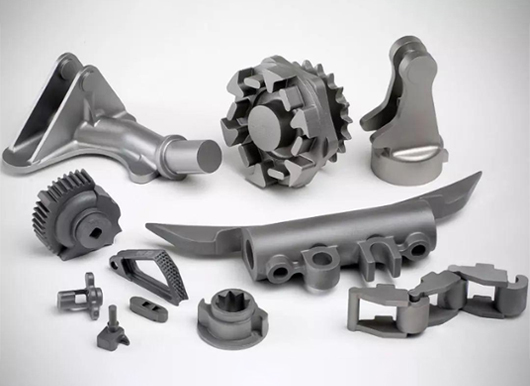The Basic Principles Of Alcast Company
The Basic Principles Of Alcast Company
Blog Article
Alcast Company Things To Know Before You Buy
Table of ContentsThe 45-Second Trick For Alcast CompanyNot known Facts About Alcast CompanyLittle Known Questions About Alcast Company.Rumored Buzz on Alcast CompanySome Known Questions About Alcast Company.A Biased View of Alcast Company
The subtle difference lies in the chemical web content. Chemical Contrast of Cast Aluminum Alloys Silicon advertises castability by reducing the alloy's melting temperature and enhancing fluidity during spreading. It plays a vital duty in enabling detailed mold and mildews to be filled up accurately. Furthermore, silicon adds to the alloy's stamina and use resistance, making it beneficial in applications where durability is vital, such as automotive parts and engine elements.It likewise enhances the machinability of the alloy, making it much easier to process right into ended up items. By doing this, iron adds to the general workability of light weight aluminum alloys. Copper increases electrical conductivity, making it beneficial in electric applications. It additionally improves corrosion resistance and adds to the alloy's general stamina.
Manganese contributes to the stamina of aluminum alloys and improves workability. Magnesium is a lightweight aspect that supplies stamina and impact resistance to light weight aluminum alloys.
Some Ideas on Alcast Company You Should Know
Zinc improves the castability of aluminum alloys and assists manage the solidification process throughout casting. It improves the alloy's toughness and solidity.

The key thermal conductivity, tensile strength, return toughness, and elongation differ. Amongst the above alloys, A356 has the greatest thermal conductivity, and A380 and ADC12 have the least expensive.
The Single Strategy To Use For Alcast Company

In accuracy spreading, 6063 is well-suited for applications where complex geometries and top quality surface area coatings are critical. Examples consist of telecommunication units, where the alloy's superior formability enables streamlined and visually pleasing layouts while keeping structural integrity. In the Lights Solutions sector, precision-cast 6063 parts create elegant and efficient lighting fixtures that require elaborate shapes and great thermal efficiency.
The A360 shows premium prolongation, making it suitable for complicated and thin-walled components. In accuracy spreading applications, A360 is appropriate for industries such as Customer Electronics, Telecommunication, and Power Tools.
The 7-Second Trick For Alcast Company
Its one-of-a-kind homes make A360 a useful choice for precision spreading in these sectors, enhancing item durability and high quality. Light weight aluminum alloy 380, or A380, is a widely used casting alloy with numerous distinct characteristics. It uses superb castability, making it a perfect option for accuracy spreading. A380 shows excellent fluidness when molten, guaranteeing complex and thorough mold and mildews are properly duplicated.
In precision spreading, light weight aluminum 413 shines in the Customer Electronics and Power Devices sectors. This alloy's premium rust resistance makes it an excellent selection for outside applications, ensuring resilient, resilient items in the discussed sectors.
Alcast Company for Dummies
The aluminum alloy you select will considerably influence both the spreading procedure and the properties of the final product. Because of this, you should make your decision thoroughly and take an educated technique.
Figuring out one of the most appropriate aluminum alloy for your application will mean weighing a wide array of characteristics. These comparative alloy characteristics follow the North American Pass Away Spreading Organization's guidelines, and we've divided them right into 2 classifications. The initial classification addresses alloy features that influence the production process. The second covers characteristics affecting the residential or commercial properties of the end product.
Alcast Company - Questions
The alloy you select for die spreading directly impacts several elements of the spreading process, like exactly how very easy the alloy is to deal with and if it is prone to casting issues. Warm breaking, also known as solidification splitting, is a common die spreading defect for light weight aluminum alloys that can cause internal or surface-level splits or splits.
Particular light weight aluminum alloys are a lot more susceptible to hot breaking than others, and your choice must consider this. It can harm both the actors and the die, so you need to look for alloys with high anti-soldering residential properties.
Corrosion resistance, which is already a significant feature of light weight aluminum, can differ substantially from alloy to alloy and is an important characteristic to think about depending upon the environmental conditions your product will be exposed to (aluminum foundry). Put on resistance is an additional home generally sought in aluminum products and can differentiate some alloys
Report this page